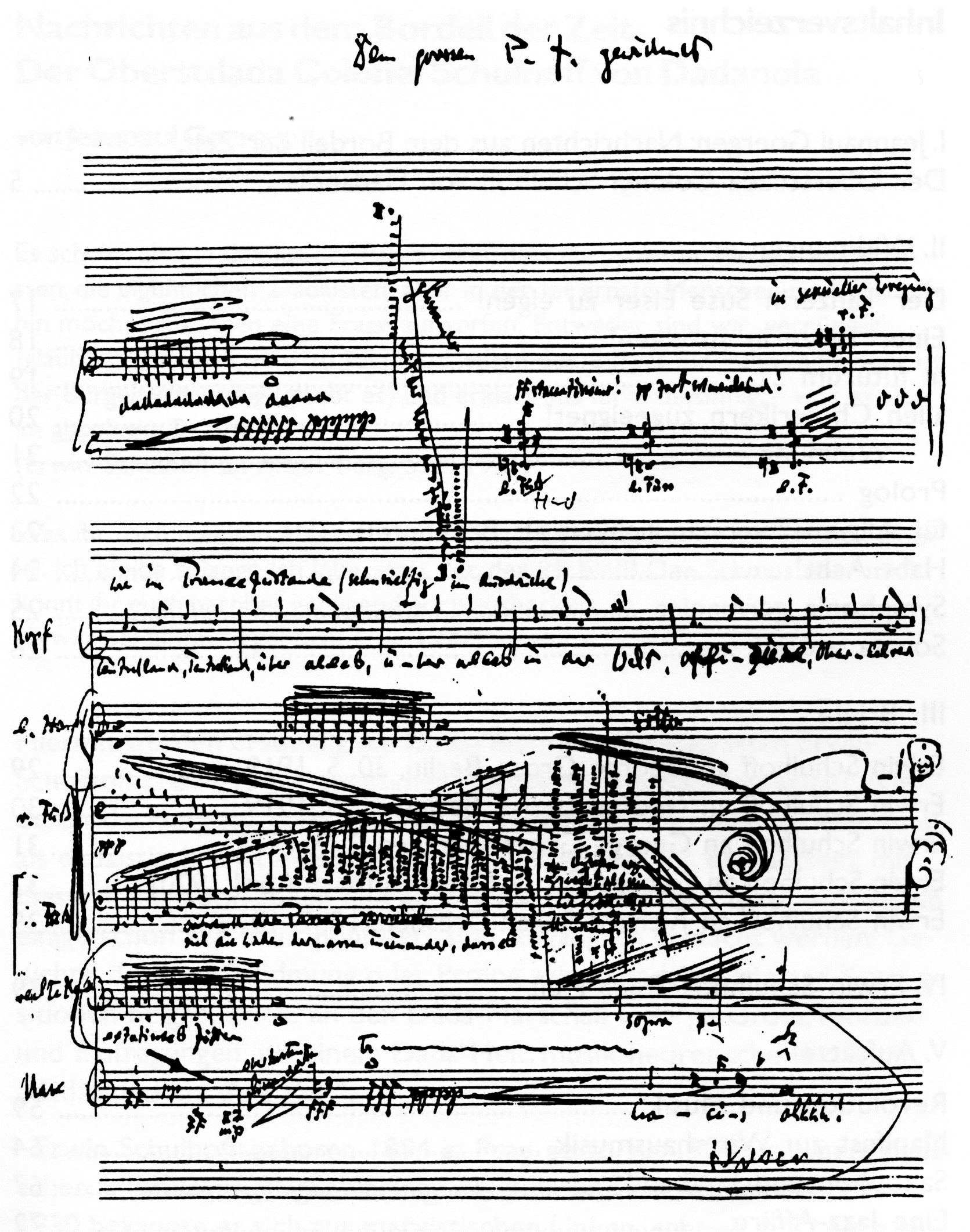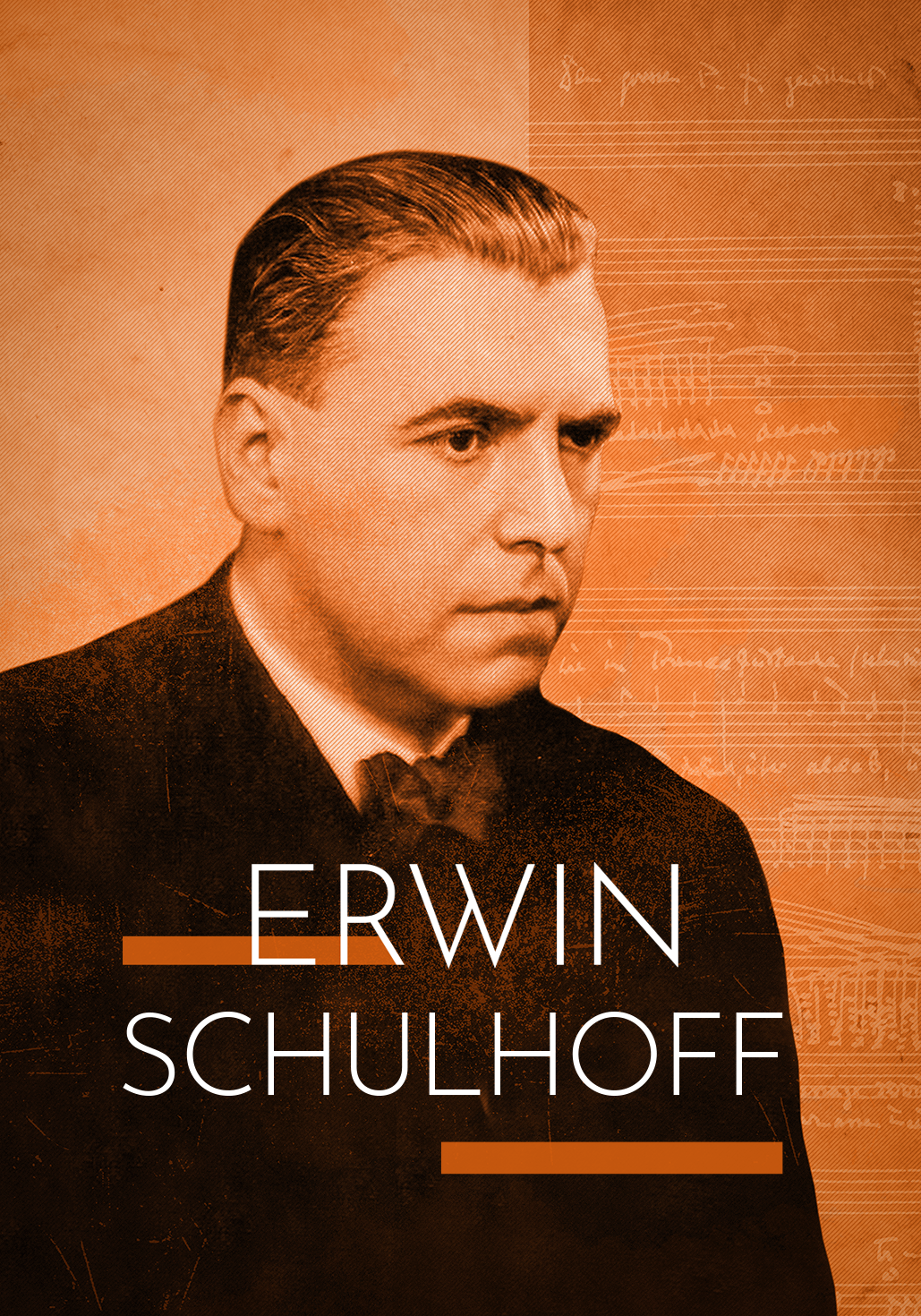8 VI 1894, Prague — 18 VIII 1942, Wülzburg internment camp (Germany)
Biography
Erwin Schulhoff was a composer and pianist whose work was inspired by jazz and Dadaism. His compositions were labelled “degenerate” by the Nazis.
Born on 8 June 1894 in Prague, he started his musical education in the Prague Conservatory under the instruction of the renowned composer Antonín Dvořák. He went on to study composition and piano in Vienna, Leipzig, and Cologne and among his teachers were Claude Debussy and Max Reger. He gave concerts in Germany, France, and Great Britain, and created works inspired by jazz and Dadaism.
Erwin Schulhoff served in the army during World War I and was wounded in battle. After the war, he first lived and worked in Germany (Saarbrücken, Berlin and Dresden), and later in Prague. When the Nazi regime came to power in Czechoslovakia, his music was banned and labelled entartete Kunst, German for “degenerate art,” incompatible with Nazi ideology. Additionally, he found it difficult to find a position due to his communist sympathies.
Once Prague was invaded, Schulhoff continued to give concerts under various pseudonyms. He applied to the Soviet Union for citizenship papers, but was arrested by the Gestapo before he was able to leave the country. In June 1941, he was deported to an internment camp in Wülzburg, Bavaria, where he died of tuberculosis, in 1942.
Erwin Schulhoff was a composer and pianist whose work was inspired by jazz and Dadaism. His compositions were labelled “degenerate” by the Nazis.
Born on 8 June 1894 in Prague, he started his musical education in the Prague Conservatory under the instruction of the renowned composer Antonín Dvořák. He went on to study composition and piano in Vienna, Leipzig, and Cologne and among his teachers were Claude Debussy and Max Reger. He gave concerts in Germany, France, and Great Britain, and created works inspired by jazz and Dadaism.
Erwin Schulhoff served in the army during World War I and was wounded in battle. After the war, he first lived and worked in Germany (Saarbrücken, Berlin and Dresden), and later in Prague. When the Nazi regime came to power in Czechoslovakia, his music was banned and labelled entartete Kunst, German for “degenerate art,” incompatible with Nazi ideology. Additionally, he found it difficult to find a position due to his communist sympathies.
Once Prague was invaded, Schulhoff continued to give concerts under various pseudonyms. He applied to the Soviet Union for citizenship papers, but was arrested by the Gestapo before he was able to leave the country. In June 1941, he was deported to an internment camp in Wülzburg, Bavaria, where he died of tuberculosis, in 1942.
—
Duo for Violin and Cello
I. Moderato; II. Zingaresca. Allegro giocoso; III. Andantino; IV. Moderato
Violin: Małgorzata Wasiucionek
Cello: Jan Skopowski
Recording from a concert at the White Stork Synagogue in Wroclaw on 13 October 2017.
Germanica
—
The location of Schulhoff’s autograph of the Symphonia germanica is unknown.
Scan extracted from: Yoel Greenberg, Parables of the Old Men and the Young: The Multifarious Modernisms of Erwin Schulhoff’s String Quartets, „Music & Letters”, Vol. 95, No. 2 (MAY 2014), pp. 213-250.

